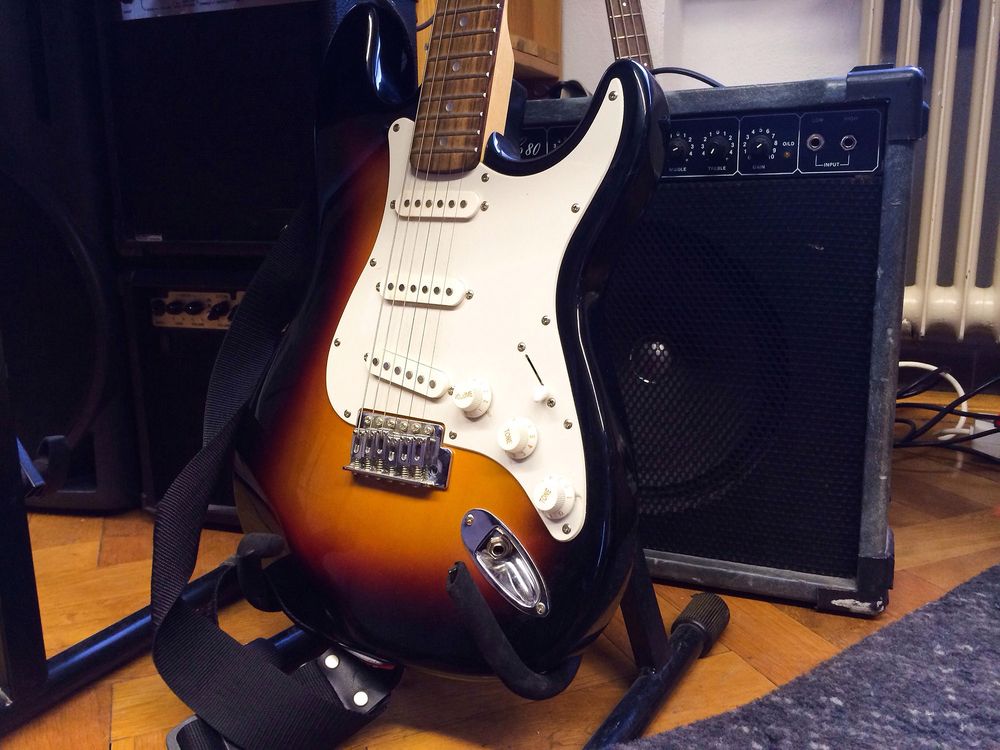6. Advantages of Amp Modeling
Versatility
Modeling amps typically come with extensive storage for numerous sound combinations that can be switched with a button press. For instance, slot 1 might have that classic AC/DC-style rock sound, while the next one delivers the distinct tone with plenty of chorus effect for "Every Breath You Take" by The Police. Whether it's for top 40 gigs or just home practice, having a range of different sounds available at the push of a button makes practicing a lot more enjoyable, especially when the sound closely resembles the original.
Volume
Tube amps need a certain level of volume for optimal sound quality, often exceeding acceptable room levels, causing trouble with neighbors and housemates. Modeling amps handle this more easily, offering that rich overdriven sound even at living room levels. Plus, nearly all these devices have headphone outputs for silent practice.
Full Setup
In a modeling amp, you usually get everything—different amp and speaker models to a vast array of effects. Of course, quality differs, so more doesn't always mean better.
Control via Tablet/Computer
In the past, dealing with the small displays on amp modeling devices could be challenging in terms of ergonomics and usability. Nowadays, with modern devices, sounds and settings can usually be directly edited via high-resolution displays, and most can be controlled via an app on a tablet or computer. These devices are more logically structured and easier to use. If you're comfortable with a smartphone, navigating an amp modeling device should be a breeze.
Downloading/Swapping Sounds
For those not interested in editing, many manufacturers offer the option to download new sounds for their devices from their websites, often for free. Some brands also have sound exchange platforms where users can share their sounds with others.



